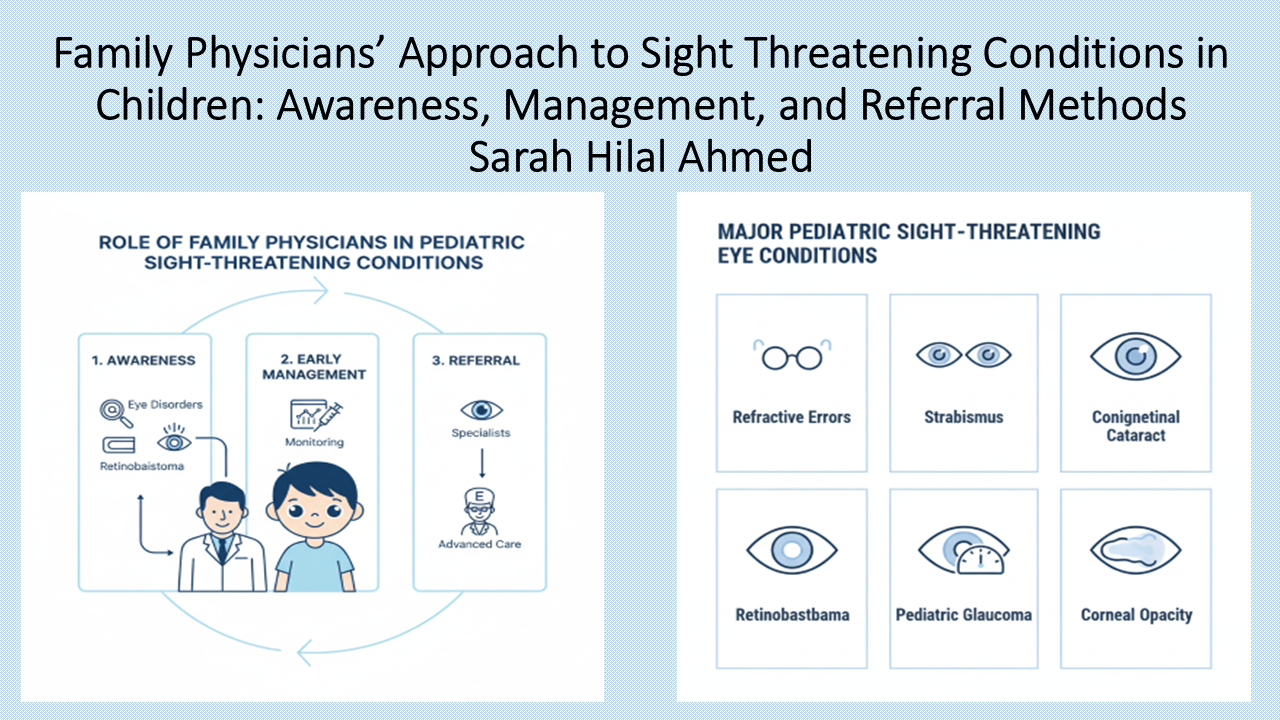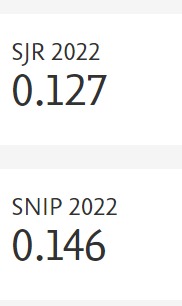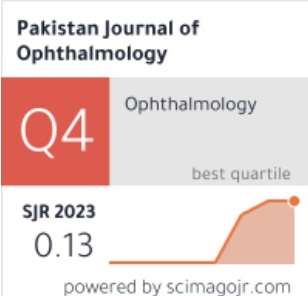Family Physicians’ Approach to Sight Threatening Conditions in Children: Awareness, Management, and Referral Methods
Doi: 10.36351/pjo.v41i4.2098
DOI:
https://doi.org/10.36351/pjo.v41i4.2098Abstract
Purpose: To evaluate the knowledge and attitude of Iraqi family physicians regarding pediatric sight threatening diseases and to identify factors influencing their approaches.
Study Design: Cross sectional, Observational study.
Place and Duration of Study: Primary health care centers of Iraq, from March 2024 to March 2025.
Methods: This study included 385 family physicians working in primary health care centers. Participants completed a structured, self-administered, web-based survey distributed via social media groups. The survey included demographic questions and assessed knowledge and attitudes toward common pediatric eye disorders. Data was analyzed using SPSSversion 22.
Results: Among the participants, 55.3% were residents. Knowledge variedsignificantly with 51.6% demonstrating good knowledge, 67.5% moderate, and 81% poor. Family medicine consultants exhibited the highest knowledge levels (78.4% “good”), compared to specialists (68.1%) and residents (10.3%). Physicians with less than one year of experience showed the most significant knowledge gaps (p=0.000). Attitudes toward pediatric eye care were generally positive, but knowledge deficiencies hindered effective practice.
Conclusion: The study reveals substantial knowledge gaps among Iraqi family physicians, particularly among residents and those with limited clinical experience. Experience and professional role strongly correlated with higher knowledge levels. To address preventable childhood vision impairment, targeted educational interventions, like structured training programs, mentorship, and the integration of pediatric ophthalmology into family medicine curricula, are urgently needed. These efforts could significantly reduce the burden of preventable vision loss in children.

Downloads
Published
How to Cite
Issue
Section
License
Copyright (c) 2025 Sarah Hilal Ahmed, Suzan Amana Rattan

This work is licensed under a Creative Commons Attribution-NonCommercial 4.0 International License.






